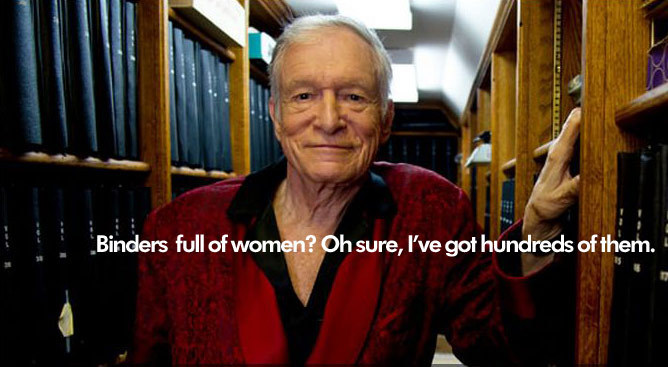MITT ROMNEY HAS BEEN running for president as the Republican nominee, de facto or de jure, for eight months now, and the grand historical joke of it has not yet worn off. A party that has set itself to frantically, fanatically expunge its moderates, quasi-moderates, suspected moderates, and fellow travelers of moderates chose as its standard bearer the lineal heir, biographically and genealogically, to its moderate tradition. It entrusted its holy crusade to repeal Barack Obama’s hated health-care law to the man who had inspired it and run, four years before, promising to do the same for the rest of America. The man and his historical moment could not be more incongruous. It was as if the Mongol tribes of the thirteenth century, setting out to pillage their way across the Asian steppe, had somehow chosen Mahatma Gandhi as their supreme khan.
Romney’s capture of the nomination required an incredible confluence of good fortune. Any one of several Republicans—Jeb Bush, Chris Christie, Paul Ryan—could have outflanked Romney in both grassroots enthusiasm and establishment support but chose not to run. The one candidate with the standing and financial reach to challenge him who did grasp for the prize, Rick Perry, performed his duties with such comic, stammering ineptitude that his final oops-de-grace by that point was not even startling. What remained to challenge Romney was a gaggle of third-raters lacking the money or the rudimentary organization even to get their name on the ballot everywhere. Still, running even against the likes of Newt Gingrich and Rick Santorum (which is to say, running essentially unopposed), Romney still trudged laboriously to victory after endless weeks.
But there is another way to make at least some sense of the Romney nomination.
IT HAS TO DO WITH the strange and sad fate of Republican moderation. After all, moderates, or at least relative moderates, do continue to exist in the Republican Party. They merely do not exercise power in any meaningful, open way. They provide off-the-record quotations to reporters, expressing unease over whichever radical turn the party has taken at any given moment. They can be found in Washington and elsewhere rolling their eyes at their colleagues. The odd figure with nothing left to lose—say, a senator who has lost a primary challenge—may even deliver a forceful assault on the party’s uncompromising direction.
For the most part, though, Republican moderation is a kind of secret creed, a freemasonry of the right. It lacks institutions that might legitimize it, or even a language to express itself. And since conservatism is the only acceptable ideology, the party has no open arguments with itself. Thus the “debate” in the Republican Party is entirely between genuine ideological warriors and unwilling conscripts, with intraparty skirmishes generally taking the form of hunts for secret heresies.
In this sense, Romney’s capture of the nomination is perfectly emblematic of the state of the party. Conservative activists spent months resisting Romney, sometimes furiously, despite the fact that he was defending no positions that they disagreed with. Across the entire ideological spectrum—in social, economic, and foreign policy—Romney stood shoulder to shoulder with his party’s reactionary wing. When Romney took on his hapless opponents, he assailed them from the right, as soft on immigration or anti-capitalist. The sole point of hesitation centered on conservatives’ suspicion that Romney did not actually believe what he was saying.
FIFTY YEARS AGO, the conservative movement, far from holding a monopoly on acceptable thought within the GOP, was merely one tribe vying for power within it, and not even the largest one. Geoffrey Kabaservice’s fine book tells the story of the slow extinction of the party’s moderate and liberal wings. The conservative movement, he shows in often gruesome detail, took control of the party in large part due to an imbalance of passion. The rightists had strong and clearly defined principles and a willingness to fight for them, while the moderates lacked both. Meeting by meeting, caucus by caucus, the conservative minority wrested control of the party apparatus. Sometimes this happened through physical force or the threat thereof. (Anybody who recalls the “Brooks Brothers riot” during the 2000 election imbroglio in Florida, when a Republican mob shut down a vote recount in Dade County, will find many of Kabaservice’s scenes familiar.) More often, the conservatives won out by packing meetings, staying until everybody else was exhausted, and other classic methods of organized fanatics. The moderates lacked the ideological self-confidence to wage these fights with equal gusto, and battle by battle they lost ground until finally there was nowhere left to stand within the party.
Republican moderates in the early 1960s held a place of influence and comfort within their party that is hard to imagine today. The worldview of the party’s Rockefeller faction was formed and propagated with the help of organizations such as the Ripon Society, Republican Advance, and the Committee on Economic Development, and publications such as the New York Herald Tribune, Confluence, and Advance. And when the great wave of the Goldwater movement arrived in the early 1960s, with the explicit goal of cleansing the party of moderates and re-making it in the image of monolithic conservatism, the moderates fought back, albeit using more gentlemanly methods than those often employed against them.
Moderates at the GOP convention in 1964 proposed a resolution condemning extremism of all varieties. Goldwater supporters voted it down, their position echoed by the candidate’s famous declaration that “extremism in the defense of liberty is no vice” and that “moderation in the pursuit of justice is no virtue.” Many moderates stalked out of the convention, including Michigan Governor George Romney and his teenage son, Mitt. Romney subsequently penned a twelve-page letter to Goldwater explaining why he had not endorsed him. When conservatives defeated moderate California Senator Thomas Kuchel, he lashed out at what he called a “fanatical neo-fascist political cult” in the grips of a “strange mixture of corrosive hatred and sickening fear.”
Following the climactic showdown in 1964, the demise of the moderates is the story of a very long bout with a terminal disease. The moderates enjoyed a brief renaissance in the wake of Goldwater’s crushing defeat by Lyndon Johnson, and they counted disproportionately among the party’s new faces in its successful comeback in the midterm elections of 1966. Richard Nixon helped to heal the party’s internal breach by straddling its wings. But once in office, Kabaservice argues, Nixon eventually settled upon a populist strategy that set him irrevocably against his own party’s moderates, even plotting to deny funding and support to insufficiently conservative members of the party, including Lenore Romney (of whom Nixon bitterly noted in private that “she’s not one of us”).
The moderate Republican tradition had always leaned heavily on elitism, which abhorred demagoguery and the crude appeals to self-interest that they correctly identified with the machine hacks and Southern racists of the Democratic Party. Nixon’s strategy of counting upon white resentment began to identify the party as a less congenial place for thoughtful, educated people. One momentous episode centered around Nixon’s Supreme Court nomination of Harrold Carswell, who was not only a reactionary segregationist but an obvious lightweight. Moderate Republicans refused to support him, one of Nixon’s aides reported, because “they think he’s a boob, a dummy. And what counter is there to that? He is.” Senator Roman Hruska defended Carswell, in a comment that would grow infamous, by asserting that “there are a lot of mediocre judges and people and lawyers. They are entitled to a little representation, aren’t they?”
Nixon’s re-branding of the party helped set in motion a long-term political swap, in which Republicans slowly lost support among white voters with a college education while gaining traction among the white working class. The transformation is now so complete that Rick Santorum can proudly announce “we will never have the elite, ‘smart’ people on our side”—“smart” referring not to native intelligence, but to those who aspire to a certain level of intellectual respectability. The party’s ideological and sociological evolutions have run in tandem, driving a progressively wider gulf between the Republicans and the technocracy.
Ronald Reagan supplied to conservative activists proof of the hypothesis that they had eagerly put forward through Goldwater: that a natural conservative majority existed among the public. For the last three decades, Reaganism has dominated the party’s self-conception to the degree that it is not possible within the party to dispute an idea identified with him. Intra-GOP arguments often divide over which side can more rightfully claim to be his heir, but, like a religious text, the merits of Reaganism itself lie beyond dispute. Alumni of the Ripon Society—the most influential of the moderate Republican organizations of the 1960s—took an informal poll of themselves in 2002 (a year when the GOP’s prestige had reached a recent apogee in the wake of the 9/11 attacks), and they discovered that three-quarters identified themselves by this point as independents or Democrats.
What remains of “moderation” within the party has taken on a definition very distinct from the meaning that it held originally. Unlike the moderate and liberal Republicans of yore, today’s “moderates” generally identify themselves as conservative. They are simply less so. The most recent wave of ideological re-making, undertaken since 2002, has seen a series of primary challenges largely replacing conservatives such as Bob Inglis, Richard Lugar, and Robert Bennett with even more implacably conservative Republicans.
What stands out in these contests is the lack of open ideological conflict. In debates within the party, both sides inevitably grasp for the conservative mantle. The virtues of the anti-government creed (except, of course, for the military and some aspects of social regulation) have no recognized limits. An incumbent challenged from the right can survive on other grounds—familiarity, likeability, the persuasive recantation of any past heresies; but the ideological ground on which he can stand has disappeared. Moderation can be successfully denied, but it cannot be defended.
DESPITE THE MISERY of continuous political defeat, moderate Republicanism—moderate by contemporary standards, at any rate—is not intellectually dead. Quite the opposite, in fact. The movement in recent years has seen a flowering of bright, creative, deeply empirical thinkers, who grapple with liberal arguments rather than retreat into an ideological cocoon, and attempt to re-fashion a program for their party that responds to real-world conditions rather than treat anti-government dogma as an eternal and axiomatic truth.
This collection of figures might seem like the promising core of a real reform movement, with the policy chops and prestige to slow down, if not reverse, the party’s deepening radicalism. Alas, any evidence of their influence at work is hard to detect. And a closer examination reveals why this is so.
In the waning years of the Bush administration, as the Republicans lost control of the Congress in 2006 and squandered its foreign policy credibility in Iraq, conservatives swiftly turned against the president they had once treated with something close to worship. The vast majority of them settled upon the same indictment that they had leveled against Bush’s father: he had failed because he had abandoned the anti-government faith. What had been tiny caveats in the right’s fulsome embrace of Bush in 2004—his passage of a prescription-drug benefit and education reform, his self-identification as a “compassionate conservative”—blossomed into evidence of a wholesale betrayal.
But the small handful of moderates developed a very different critique. They noticed that a wide chasm had opened up between the party’s increasingly working-class voting coalition and its policy agenda centered around regressive income tax cuts. The Republican economic agenda under Bush had not delivered income gains to its constituents, and it had ignored festering social problems like health care. Both political necessity and the weight of the evidence, they argued, required that the party alter its course.
As the Bush administration came to a close, and the party set out to decide its way forward, the moderates may have been hopelessly outnumbered and outshouted by the Rush Limbaughs and Wall Street Journal editorial pages and other voices of right-wing purity, but they had a relatively coherent analysis and at least a small place at the party table. In the wake of two consecutive election wipeouts, the last developing amidst the humiliating and almost surreal anti-intellectualism of Sarah Palin, it seemed possible to imagine, as the Obama administration dawned, that Republican elites might at least consider the proposition offered by their moderates.
[This is the point I made in my Sept 12 blog post:]
But instead of halting or reversing its long march to the right, the GOP accelerated it, on every item of the Obama domestic agenda. In 2008, John McCain advocated a cap-and-trade bill to control climate change, but McCain and all his GOP allies abandoned it, and even turned against the whole notion of attempting to limit carbon emissions. (Among the public, the percentage of Republicans saying they believed that there was “solid evidence” that the Earth’s temperature was increasing fell from 59 percent in 2006 to 35 percent in 2009.) The party had previously advocated monetary and fiscal stimulus in response to an economic slowdown, but under Obama it dusted off obscure theories previously associated only with Ron Paul and the party’s fringe. The health-care reform approach developed by Romney in Massachusetts, which Romney himself had advocated as a national model during his 2008 presidential campaign to barely any complaint from within his party, now became a socialist horror.















